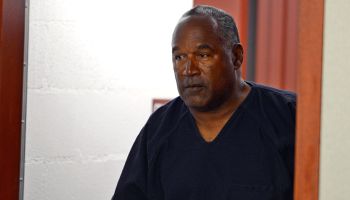For years individuals, businesses, and the government borrowed excessively based on what they hoped to earn tomorrow. In the latter part of the George Bush II era many believed, through the excessive use of debt, to have found the magic fountain of wealth. However, the rug was pulled from beneath all of us when the housing crisis started near the end of 2007. The housing crisis led to a credit crisis, and that led to an overall decline of the US economy which increased the levels of unemployment to the tune of as much as 750K jobs lost per month.
President Obama entered office and instituted a stimulus package that while successful in stopping the bleeding, did not correct the problems in the economy (housing market, credit crisis, high unemployment rate, etc.). However, the stock market acted as if all problems were resolved as the Dow Jones went from a low of around 6,600 in March of 2009 to a high of 12,800 in May of 2011.
Along comes the smokescreen debate of a debt ceiling crisis. The debt ceiling is a cap which is set by Congress on the amount of debt the federal government can legally borrow. Essentially, every time congress votes on legislation that increases spending or decreases taxes, they vote to increase the debt ceiling; the debt ceiling debate is about whether or not to pay the bills the country has already incurred. I call this debate a smokescreen because prior to the presidency of Barak Obama, increasing the debt ceiling has traditionally been a procedural vote that got no publicity. Since 1962 the debt ceiling has been raised 74 times – Reagan raised the debt ceiling 18 times, and the debt ceiling has been raised 10 times since 2001 under George W. Bush. If the debt ceiling was not raised by the beginning of August, 2011 the US would have defaulted on its debt for the first time in history, an event which would have been cataclysmic for the economy. The GOP decided to use this as a political bargaining chip to turn this procedural vote into an opportunity to demand spending cuts and risk economic collapse if those demands were not met.
After the debt ceiling debate was settled, Wall Street traders suddenly remembered the fragile nature of the economy; the same issues and problems (housing crisis, credit crisis, and high unemployment) that existed before the Dow Jones reached a high in May, 2011 were still with us. This is when the Dow Jones began to tumble. After its initial decline, Standard and Poors made the decision to downgrade the US credit rating for the first time in US history from a AAA to a AA+. This caused further decline in US equity markets and this brings us to the most important question of the day…what can you do to protect yourself in this volatile economy? Here are some steps:
• DON’T PANIC! The worst thing you can do in this economy is to make a knee jerk decision which either locks in losses or takes you away from your long term investment strategy. Volatile price swings will become very common but the 600+ point drop recently experienced in the Dow Jones will be a small blip on the screen which you will hardly remember 5 years from now unless of course you panicked and locked in some losses! If I told you they were selling shoes for 200% more than retail, would you go running to buy them? Of course not. What if I told you about a 75% OFF shoe sale at your favorite store…would that interest you? It might! Think of stocks as you might think of a shoe sale. If you have a long term investment strategy, and you like the investments, cheaper prices are a good thing! Keep that dollar cost average strategy going and make sure to continue to have that semi-annual meeting and quarterly call with your advisor to be sure your asset allocation is appropriate for your age and risk tolerance.
• FOLLOW THE NEWS: Now more than ever the news coming from Washington is playing an important role in your finances. The announcement of the Fed Chairman Ben Bernanke to keep rates low through 2013 means the variable rate on your credit card which it attached to prime rates will stay reasonably low. US treasury yields hitting January 2009 lows means mortgage rates should also be low as they are tied to US treasuries. The US is still the safest place to park funds and I would expect that rates should remain relatively low for at least the next 6 months barring an unforeseen incident.
• PREPARE FOR OPPORTUNITY: It is said that the Chinese symbol for crisis means danger AND opportunity. Now is the time you should be preparing yourself to take advantage of the real estate market and any other opportunities that a volatile market presents. In this credit crisis, those who will benefit most are those who have high liquidity with their money and good credit scores. So to prepare yourself here are some examples of what you should be doing right now:
• Go to annualcreditreport.com and get your free credit report to start repairing and/or building your credit.
• Put a budget together to establish your surplus (income minus expenses) each month. From your budget you can derive a goal of establishing an emergency fund which should comprise 9-12 months of living expenses in a high yield savings account (6 months of cash and 3-6 months in a total line of credit).
• Gather your family and close friends to discuss forming investment clubs which can focus on stocks and/or real estate property. Pooling funds can help eliminate the problem of low liquidity in your household plus it will mitigate the risk of full ownership. Be sure to create the appropriate contacts and use the appropriate software…your advisor should be able to assist in this process.
• Take some night courses at the local college. Highly skilled workers who can provide high productivity are a premium in this market and as layoffs continue you might be able to capitalize by enhancing your skillset or at least ensure your job is secure.
• Research the needs in your area, look within yourself to determine your passions, and combine both your needs and your passion to create a new business on the side. Over half of the S & P 500 companies were started during difficult economic times like these…perhaps it is time to get off that plantation and start your own company!
• HAVE FAITH: Now more than ever in this depressed economy, we need a heavy dose of faith. Faith isn’t some pie in the sky emotion that one only displays on Sundays. Faith is a living, active, vital component of every household. If you take a dose of believing and equivalent dose of acting on that belief, you have a recipe for faith. Below are some concrete examples of how to use faith in your daily living as well as your financial strategies:
• If you believe you are in danger of foreclosure, take action with hud.gov to get a credit counselor to help save your home.
• If you believe that equities markets are still a little too risky, take action and talk to your advisor about other avenues that can provide a decent yield in your portfolio like municipal bonds which can provide you a 4% TAX FREE yield.
• If you believe there could be a chance that we will see inflation, take action and purchase GLD (SPDR Gold Trust) which is the exchange traded fund for gold to hedge against inflation.
• If you believe you have the ability to purchase an investment property, take action to build your savings, improve your FICO score, and prepare yourself properly to be a landlord.
• If you believe your family has too many resources and brilliant minds to suffer through a recession, take action to gather your family for an empowerment meeting every six months to discuss how to effectively use family resources to find jobs, establish college funds, and fulfill financial goals of your family.
By the numbers, we are not technically in a recession as a country. However, many in our communities feel like it is a depression. Each time you make a wise financial decision you add to an overall pool of fiscal responsibility that will help rebuild our communities, and minimize the greed and fiscal irresponsibility that brought our communities to an economic halt. People in all communities have suffered a lot losing billions of dollars in net worth, but through hard work and prudent action, we will see brighter days in our futures.
Written By: Ryan Mack, President of Optimum Capital Management, LLC
Email Questions and/or Comments to ryan@optimum-capital.com
(www.optimum-capital.com)
RELATED:
Financial Planner: The Greatest Investment Is In Your Community















